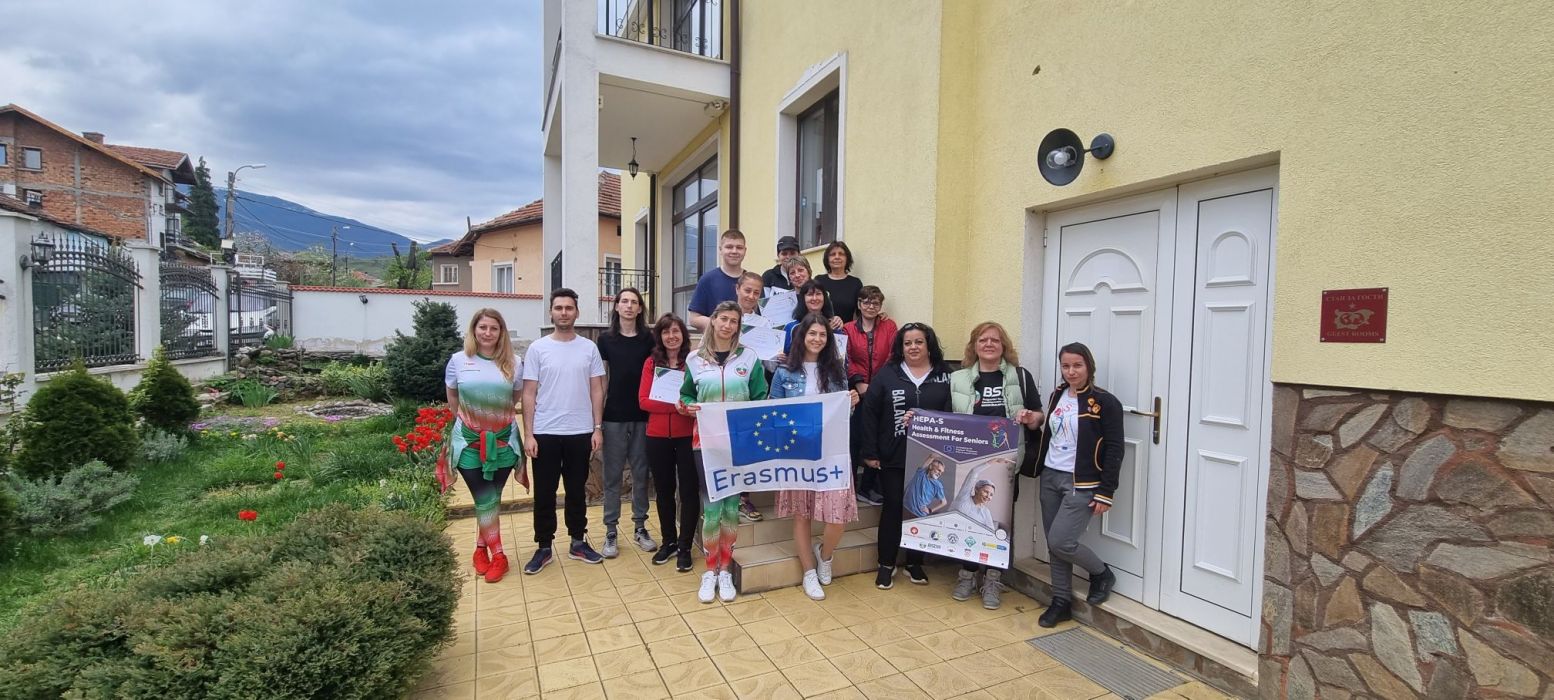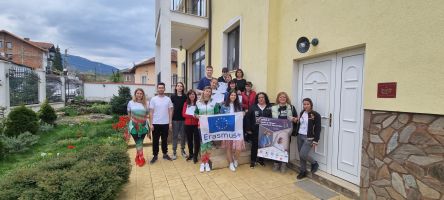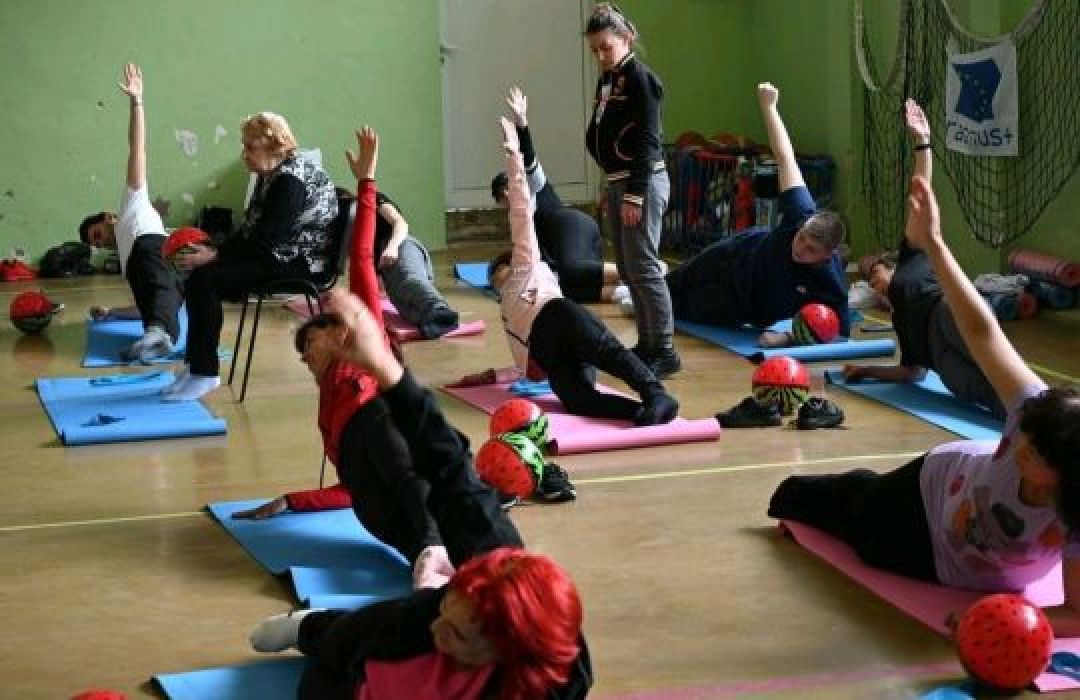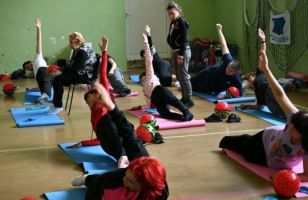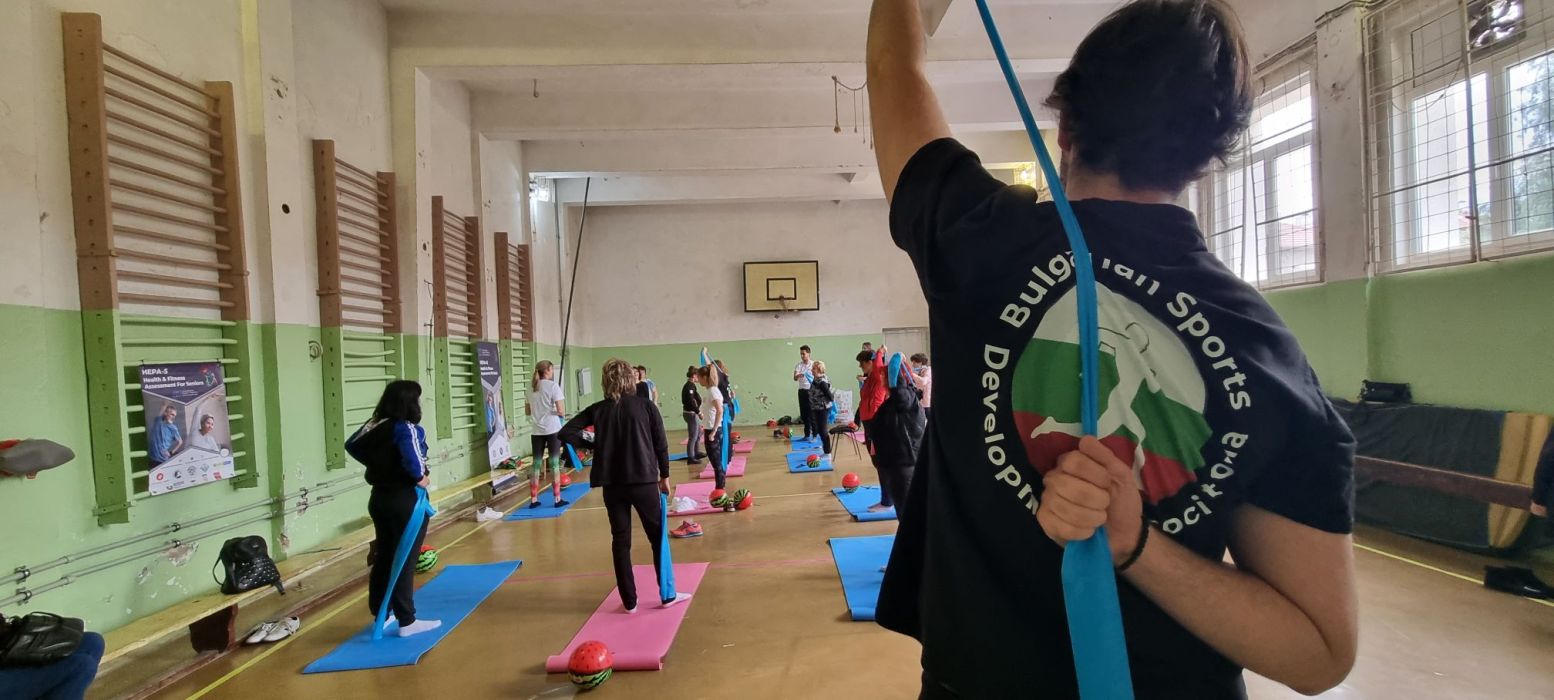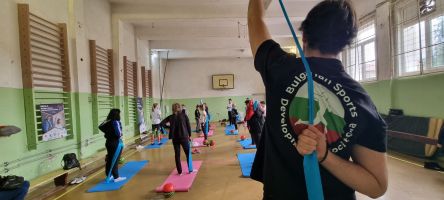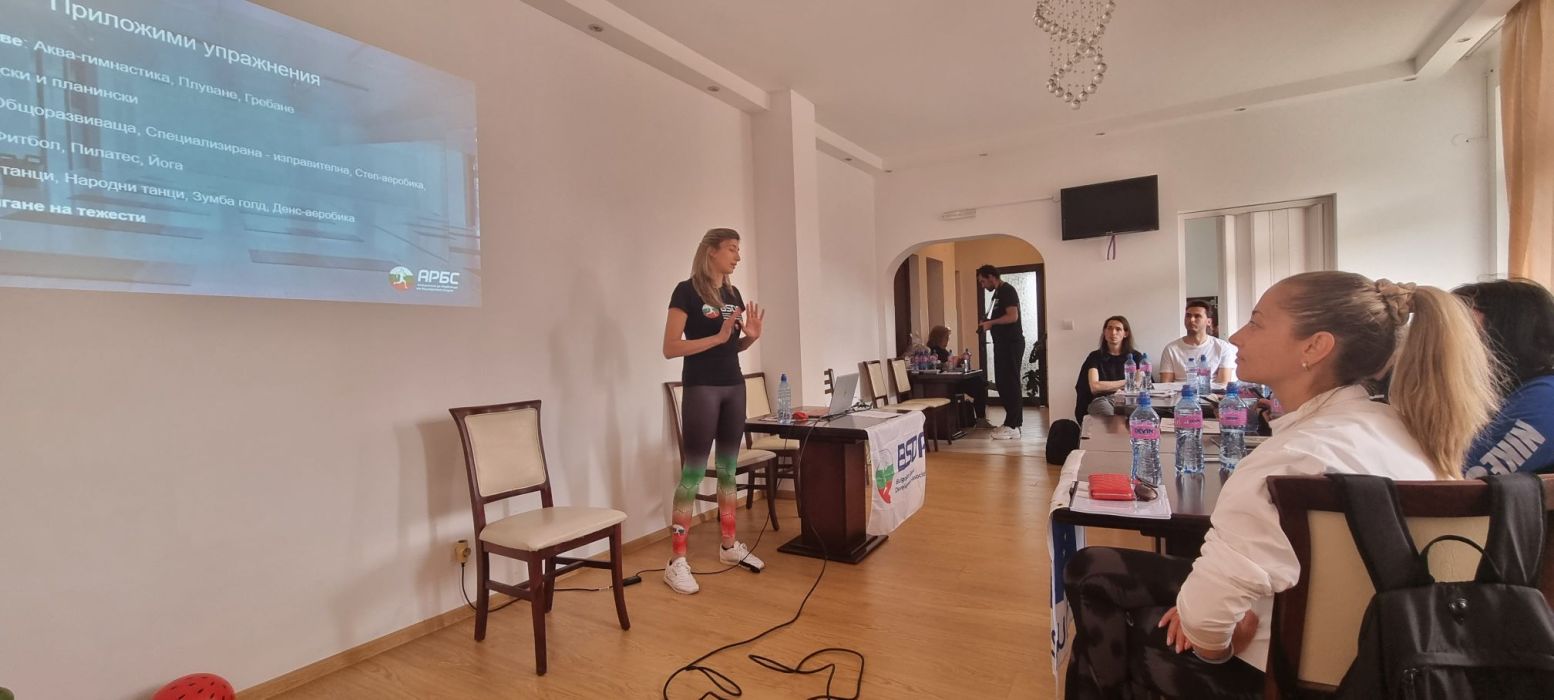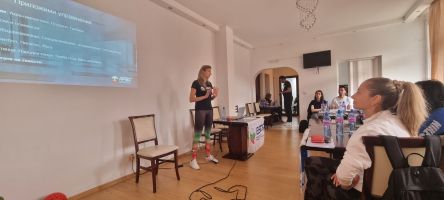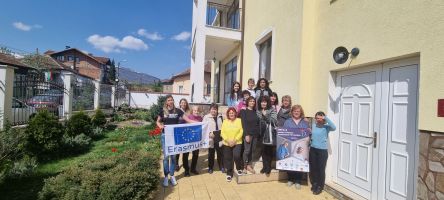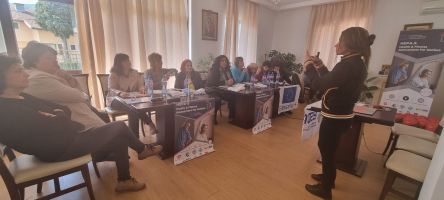NEWS

TRAINING OF HEALTH AND SPORTS SPECIALISTS WAS HELD IN THE TOWN OF BERKOVITSA


16.04.2022
On April 16, 2022, in the town of Berkovitsa, a training event was held. During the event, health and sports experts from the town got acquainted with the specifics of physical activity for adults. The training was conducted within the HEPA (Health Enhancing Physical Activity) project, co-funded under the Erasmus+ programme of the European union, which aims to encourage participation in recreational physical activity for seniors (persons age 65+) by developing new recreational sport programmes suited for 3 types of most common health conditions – back pain, cardiovascular diseases and osteoporosis. The initiative is running simultaneously in five European countries – Bulgaria, Croatia, Portugal, Slovenia and Serbia. The Bulgarian partner of the initiative is the Bulgarian sports development association.
After the training, a four-month free program for physical activity for adults is going to be held in the town, coordinated by the local partners of the project – Health in the northwest association. The event included lectures on: Physical activity for adults – current data and challenges; Recommendations for physical activity; Cooperation between health and sports; Adapted sports and inclusion in sports and physical activity of all groups in society; Resource security – opportunities for support; Opportunities and challenges for physical activity in a post-COVID environment, Physical activity for adults – Applicable exercises; Osteoporosis and its specifics, as well as a practical sports session – Let's be active together!. Speakers at the event were Valentina Brankina – chairperson of the Health in the northwest association, Ivelina Kirilova, PhD – expert in adapted physical activity and sport, Ivelina Dimitrova – kinesitherapist and specialist in adapted physical activity and sport, Diana Hadzhiangelova – chairperson of the Association of Bulgarians with asthma, allergies and COPD and Joanna Dochevska – chairperson of the Bulgarian sports development association. Among the participants were proven sports specialists from Berkovitsa, including Tatiana Elenkova and Plamena Chuburova, who are going to conduct the four-month pilot program, medical professionals, rehabilitators and experts from social institutions and centers in the region.
The health benefits of physical activity (PA) for older adults have been well established in the scientific literature. Numerous outcomes have been studied to document associations with PA, including reduced prevalence of common chronic conditions (eg, cardiovascular disease, diabetes, hypertension), improved mental health (eg, depression, stress), quality of life, increased physical function, decreased cognitive decline (eg, dementia, Alzheimer's disease) and reduced mortality rates. Physical activity is at the core of health and well-being. The social benefits of physical activity participation are often particularly important to older people. However, health promotion messages often target children and young people, with less focus on the importance of physical activity for people aged 65 years and over. The project is going to pay special attention to the people accommodated in "Homes for the elderly", associations of the elderly, etc. Surveys show that in Europe 25% of people over the age of 60 are physically inactive, which shows that Europe needs innovative exercises for this target group to take into account their physical condition, the limitations of their health and the physical capabilities they possess. The World Health Organization (WHO) recommends that adults engage in at least 150 min of moderate-intensity aerobic physical activity each week. On EU level, the report, unveiled by Commissioner Navracsics (European Commissioner for Education, Culture, Youth and Sport at the European Commission) in Sofia during the annual EU Sport Forum shows that levels of participation have not changed substantially since the previous Eurobarometer survey.
THE SPECIFIC OBJECTIVES OF HEPA PROJECT ARE:
• Raising awareness regarding benefits of participation in recreational PA for seniors (persons age 65+) in terms of social inclusion and health-enhancing;
• Analysing current HEPA guidelines in project countries and developing new Recommendations for implementing HEPA for seniors with emphasis on new developed exercises aimed at resolving back pain and on exercises adapted to persons with cardiovascular disease and osteoporosis using multisector approach;
• Strengthening the capacity of kinesiologists and trainers through non-formal education on new methodology for conducting recreational sport activities for seniors in project countries;
• Strengthening the capacity of general practitioners on benefits of participation of seniors in recreational sport activities;
• Creating a network of main stakeholders (project partner organizations, kinesiologists and general practitioners), national and local sports committees, and units of local (self) government and health institutions to exchange examples of good practice regarding the inclusion of seniors in recreational sport activities.
HEPA project is co-funded by the Erasmus+ program of the European union.
The health benefits of physical activity (PA) for older adults have been well established in the scientific literature. Numerous outcomes have been studied to document associations with PA, including reduced prevalence of common chronic conditions (eg, cardiovascular disease, diabetes, hypertension), improved mental health (eg, depression, stress), quality of life, increased physical function, decreased cognitive decline (eg, dementia, Alzheimer's disease) and reduced mortality rates. Physical activity is at the core of health and well-being. The social benefits of physical activity participation are often particularly important to older people. However, health promotion messages often target children and young people, with less focus on the importance of physical activity for people aged 65 years and over. The project is going to pay special attention to the people accommodated in "Homes for the elderly", associations of the elderly, etc. Surveys show that in Europe 25% of people over the age of 60 are physically inactive, which shows that Europe needs innovative exercises for this target group to take into account their physical condition, the limitations of their health and the physical capabilities they possess. The World Health Organization (WHO) recommends that adults engage in at least 150 min of moderate-intensity aerobic physical activity each week. On EU level, the report, unveiled by Commissioner Navracsics (European Commissioner for Education, Culture, Youth and Sport at the European Commission) in Sofia during the annual EU Sport Forum shows that levels of participation have not changed substantially since the previous Eurobarometer survey.
THE SPECIFIC OBJECTIVES OF HEPA PROJECT ARE:
• Raising awareness regarding benefits of participation in recreational PA for seniors (persons age 65+) in terms of social inclusion and health-enhancing;
• Analysing current HEPA guidelines in project countries and developing new Recommendations for implementing HEPA for seniors with emphasis on new developed exercises aimed at resolving back pain and on exercises adapted to persons with cardiovascular disease and osteoporosis using multisector approach;
• Strengthening the capacity of kinesiologists and trainers through non-formal education on new methodology for conducting recreational sport activities for seniors in project countries;
• Strengthening the capacity of general practitioners on benefits of participation of seniors in recreational sport activities;
• Creating a network of main stakeholders (project partner organizations, kinesiologists and general practitioners), national and local sports committees, and units of local (self) government and health institutions to exchange examples of good practice regarding the inclusion of seniors in recreational sport activities.
HEPA project is co-funded by the Erasmus+ program of the European union.

 Български
Български







































